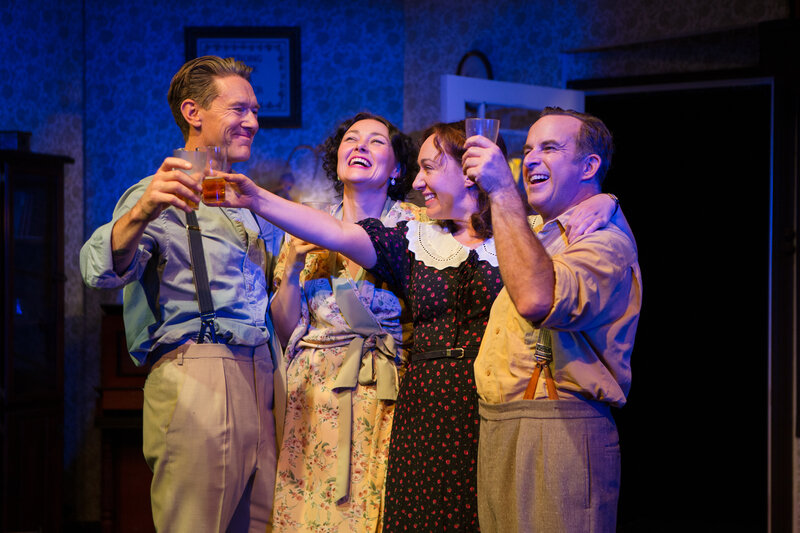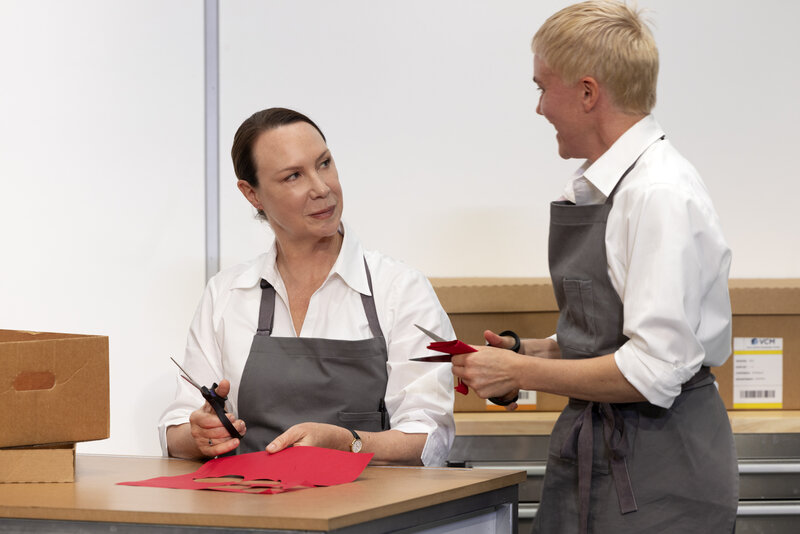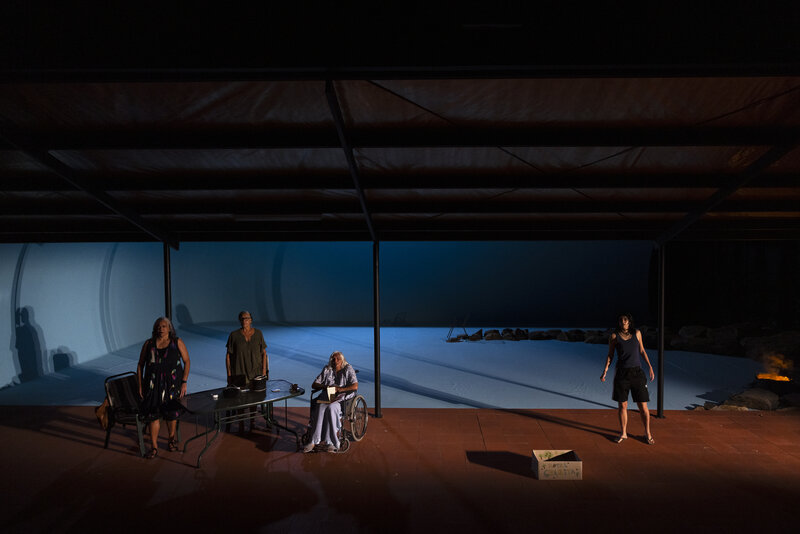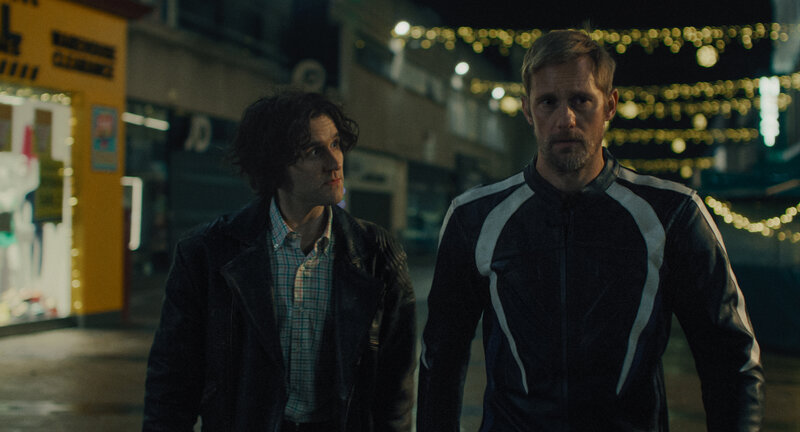While an important topic, British playwright Francis Grin has failed to make the most of her canvas in constructing Flash. The subject matter is rape and rape culture, in this case specifically as it pertains to a 15-year-old boy, a thoroughly unlikeable character throughout the production’s 75-minute running time.
 His name is Christian (Dominic Weintraub) and he’s a bit of a looker and fancies himself as a “ladies man”. He lost his virginity when he didn’t know which way was up at a brothel where his father was “doing it” in another room. Now he’s attended a schoolboy party, where copious quantities of alcohol were consumed, and taken advantage of a 14-year-old virgin, Laura (Casey Bohan). But, as we find out, she may not have been the only one he got it on with. Christian – or Chris, as he is often known – also appeals to Carrie (Ruby Duncan) and she is jealous of the interest he has shown in Laura. They, along with Chris’ mate Ollie, share idle chatter, play games and drink.
His name is Christian (Dominic Weintraub) and he’s a bit of a looker and fancies himself as a “ladies man”. He lost his virginity when he didn’t know which way was up at a brothel where his father was “doing it” in another room. Now he’s attended a schoolboy party, where copious quantities of alcohol were consumed, and taken advantage of a 14-year-old virgin, Laura (Casey Bohan). But, as we find out, she may not have been the only one he got it on with. Christian – or Chris, as he is often known – also appeals to Carrie (Ruby Duncan) and she is jealous of the interest he has shown in Laura. They, along with Chris’ mate Ollie, share idle chatter, play games and drink.
Among the 39 scenes, travelling back through time, we also gain insights into the relationship Christian has had with his overbearing, bullyboy father (Brett Fairbairn). His mother isn’t even mentioned. In fact, Fairbairn also plays a second character, namely a reflective version of Christian.
Grin was inspired by her own experiences growing up to write Flash, a look at the transition from youngster to adult. “Without guidance or rules, Christian finds himself in an environment where he’s allowed to almost skip over his own childhood. In the end, adulthood has consequences that he isn’t quite ready for,” Grin says. She maintains “the sporadic, episodic nature of the play is meant to feel slightly disorienting, as Christian’s emergence into adulthood is happening too quickly to be understood by himself or anyone else.”
Unfortunately in large measure I sat there perplexed, frustrated and bored. I found the dialogue tiresome and childish, and most of it didn’t lead anywhere. The teenage Chris is the driving force in the piece and yet he is so over-the-top obnoxious as to be a total turnoff. Perhaps if he was at least a likeable cad or coward, he might have sparked some audience response. Laura was so intoxicated for 80 per cent of the time that she didn’t know what was happening. Surely, she deserved a bigger role. I would have liked more exploration of Carrie’s persona too. She is a girl with attitude, but again that attitude isn’t given enough room to move. As for Ollie, I simply saw him as a wimp with very little to do. He was there, but really just a waste of space.
I am not at all convinced splitting Christian’s father and alter ego in two in the one actor worked. Quite simply, it was confusing. In fact, far too much of this work is a deliberately designed puzzle with missing pieces that are never found – not enough is spelt out. The interplay between father and son takes place to the far left of stage in and around a beige armchair and often involves a couple of herbal cigarettes. The other characters frolic around an outdoor setting and an imaginary pool, and indoors in a bedroom.
 Rape at any age is clearly unacceptable and it has been gathering plenty of column centimetres in relation to what is known to have transpired on university campuses and in the military. Moving it back to the early teenage years should have been even more horrifying, but somehow it wasn’t.
Rape at any age is clearly unacceptable and it has been gathering plenty of column centimetres in relation to what is known to have transpired on university campuses and in the military. Moving it back to the early teenage years should have been even more horrifying, but somehow it wasn’t.
To go back to where I started, Flash was a golden opportunity missed and director Carl Whiteside was left limited by the material with which he had to work. It is on at The Owl and Cat Theatre, 34 Swan Street, Richmond, until 15th July.
Alex First

David Edwards is the former editor of The Blurb and a contributor on film and television




